Introduction
Data structures, such as Infinispan Cache, that are accessed and modified concurrently can suffer from data consistency issues unless there're mechanisms to guarantee data correctness. Infinispan Cache, since it implements ConcurrentMap, provides operations such as conditional replace, putIfAbsent, and conditional remove to its clients in order to guarantee data correctness. It even allows clients to operate against cache instances within JTA transactions, hence providing the necessary data consistency guarantees.
However, when it comes to Hot Rod protocol backed servers, clients do not yet have the ability to start remote transactions but they can call instead versioned operations to mimic the conditional methods provided by the embedded Infinispan cache instance API. Let's look at a real example to understand how it works.
Data Consistency Problem
Imagine you have two ATMs that connect using Hot Rod to a bank where an account's balance is stored. Two closely followed operations to retrieve the latest balance could return 500 CHF (swiss francs) as shown below:
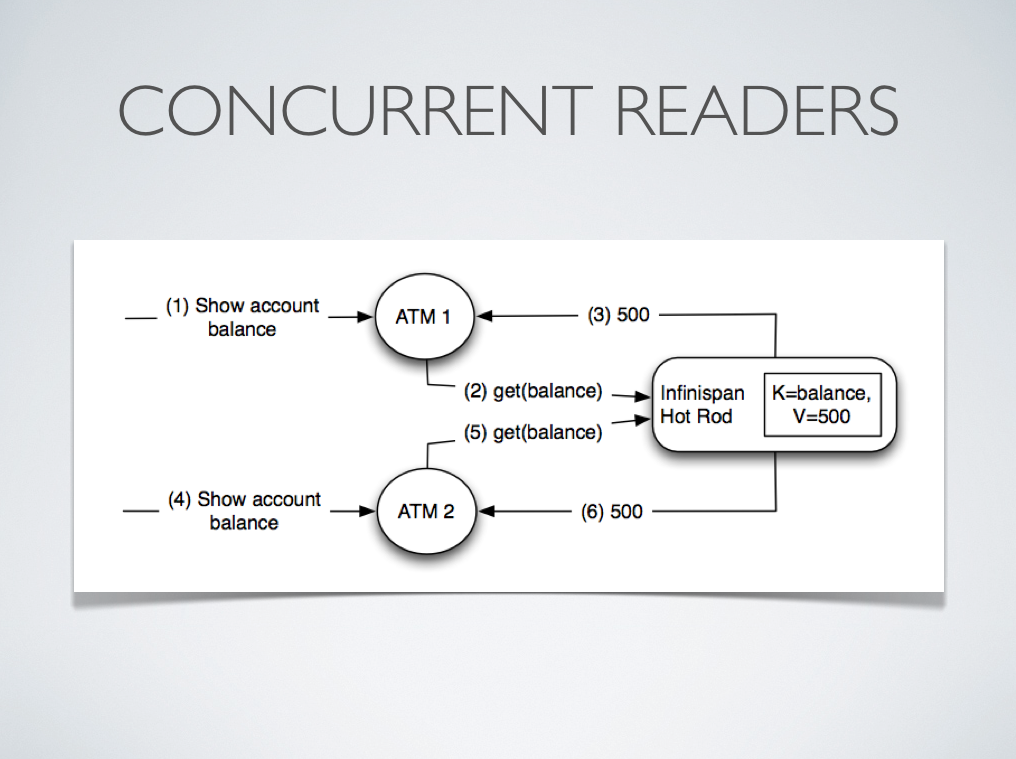
Next a customer connects to the first ATM and requests 400 CHF to be retrieved. Based on the last value read, the ATM could calculate what the new balance is, which is 100 CHF, and request a put with this new value. Let's imagine now that around the same time another customer connects to the ATM and requests 200 CHF to be retrieved. Let's assume that the ATM thinks it has the latest balance and based on its calculations it sets the new balance to 300 CHF:
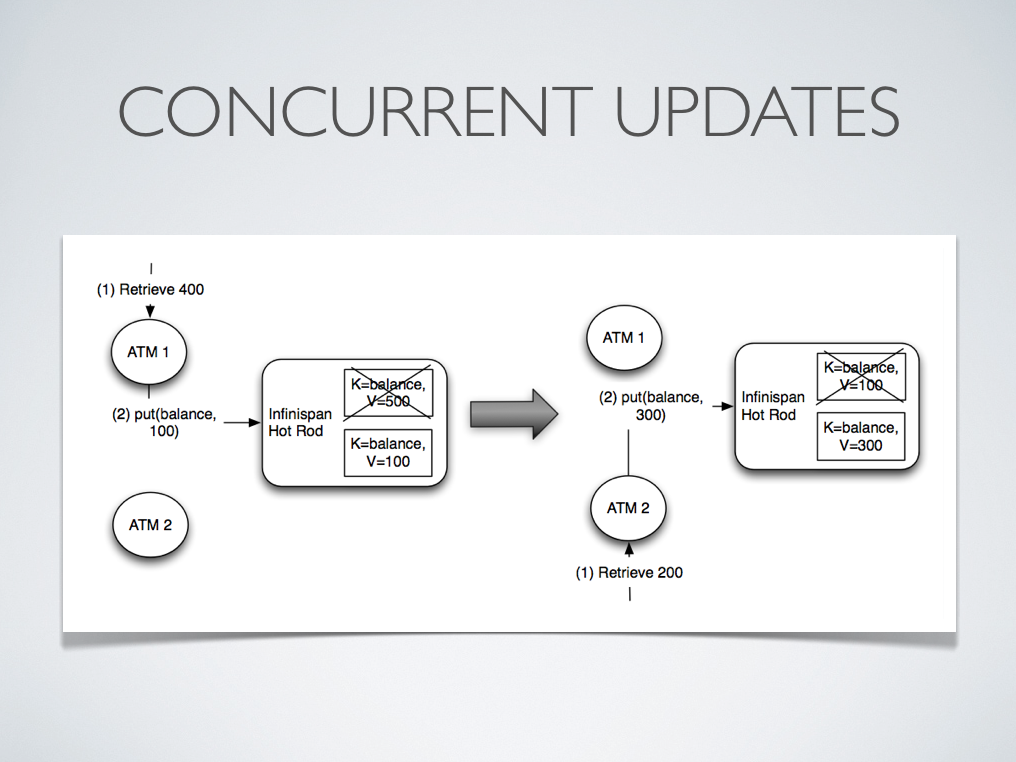
Obviously, this would be wrong. Two concurrent updates have resulted in an incorrect account balance. The second update should not have been allowed since the balance the second ATM had was incorrect. Even if the ATM would have retrieved the balance before calculating the new balance, someone could have updated between the new balance being retrieved and the update. Before finding out how to solve this issue in a client-server scenario with Hot Rod, let's look at how this is solved when Infinispan clients run in peer-to-peer mode where clients and Infinispan live within the same JVM.
Peer-to-Peer Solution
If the ATM and the Infinispan instance storing the bank account lived in the same JVM, the ATM could use the conditional replace API referred at the beginning of this article. So, it could send the previous known value to verify whether it has changed since it was last read. By doing so, the first operation could double check that the balance is still 500 CHF when it was to update to 100 CHF. Now, when the second operation comes, the current balance would not be 500 CHF any more and hence the conditional replace call would fail, hence avoiding data consistency issues:
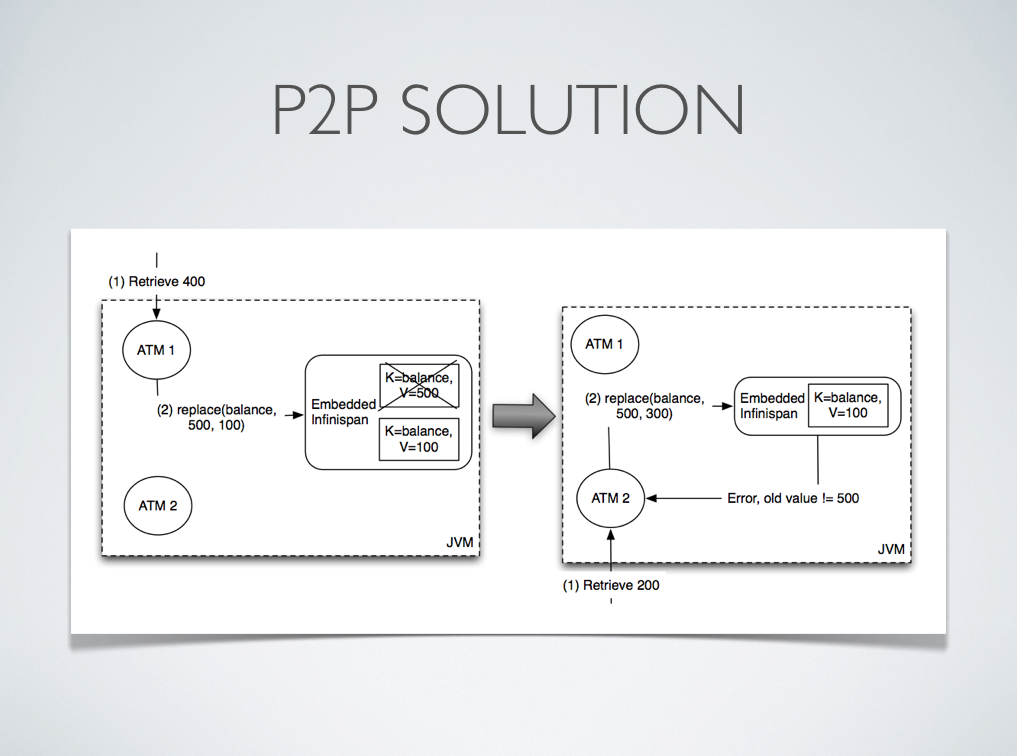
Client-Server Solution
In theory, Hot Rod could use the same p2p solution but sending the previous value would be not practical. In this example, the previous value is just an integer but the value could be a lot bigger and hence forcing clients to send it to the server would be rather wasteful. Instead, Hot Rod offers versioned operations to deal with this situation.
Basically, together with each key/value pair, Hot Rod stores a version number which uniquely identifies each modification. So, using an operation called getVersioned or getWithVersion, clients can retrieve not only the value associated with a key, but also the current version. So, if we look at the previous example once again, the ATMs could call getVersioned and get the balance's version:
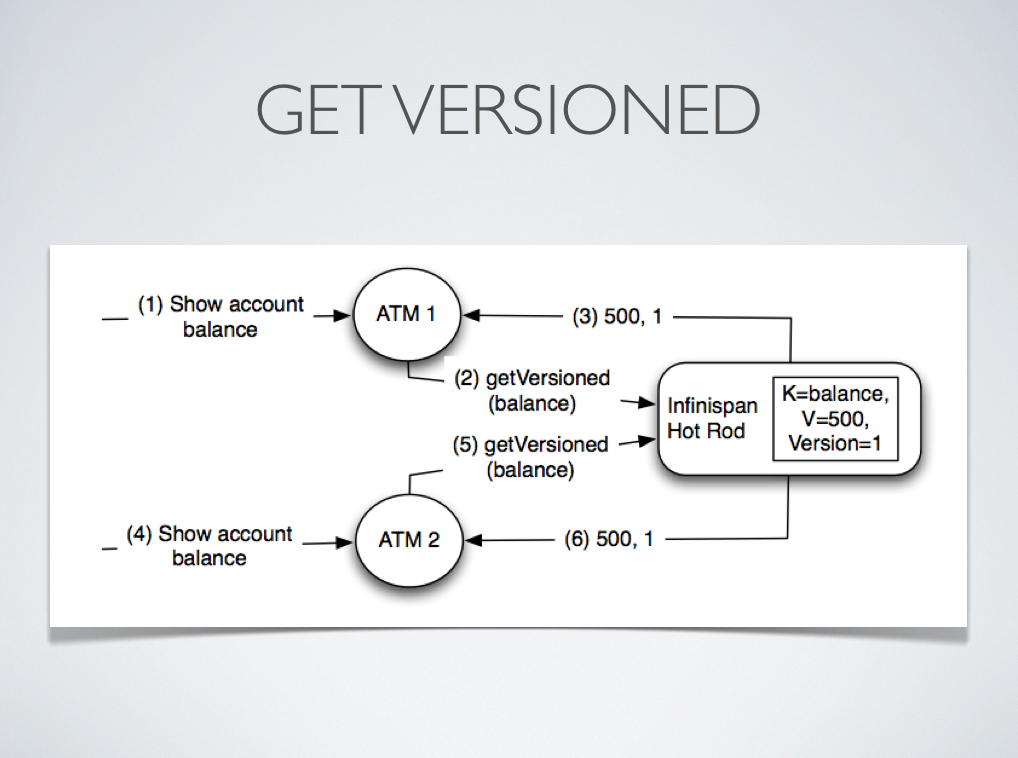
When the ATMs wanted to modify the balance, instead of just calling put, they could call replaceIfUnmodified operation passing the latest version number of which the clients are aware of. The operation will only succeed if the version passed matches the version in the server. So, the first modification by the ATM would be allowed since the client passes 1 as version and the server side version for the balance is also 1. On the other hand, the second ATM would not be able to make the modification because after the first ATMs modification the version would have been incremented to 2, and now the passed version (1) and the server side version (2) would not match:
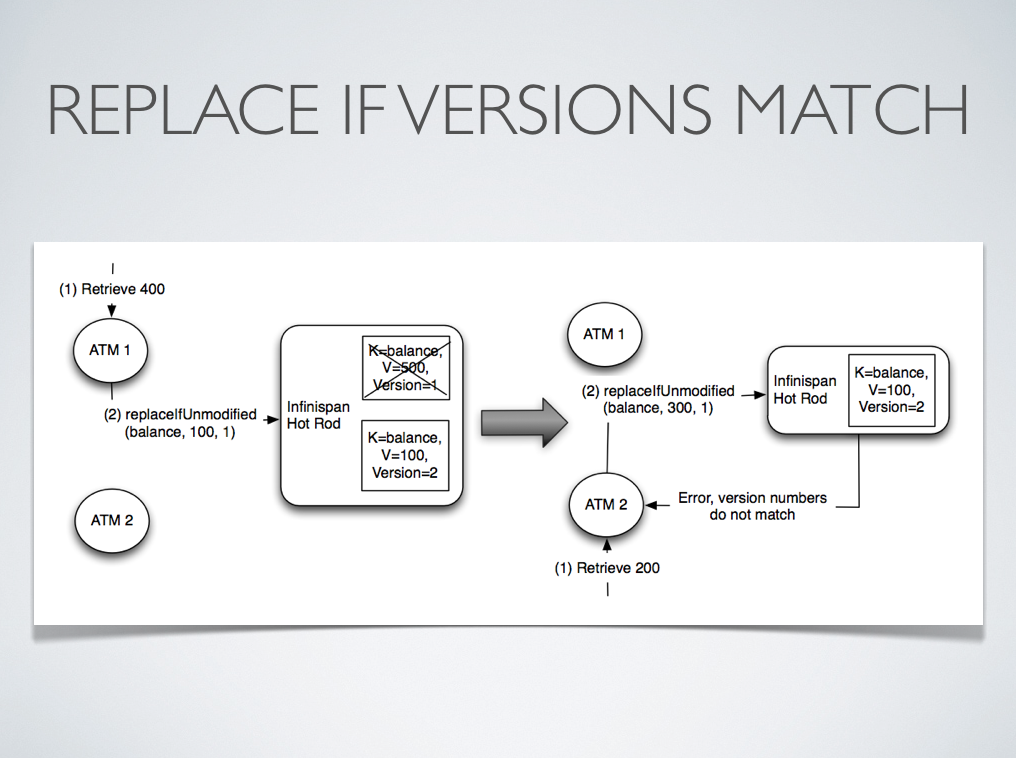
Finally, to find out how to call these operations from a Java environment, checkout the Java Hot Rod Client article.